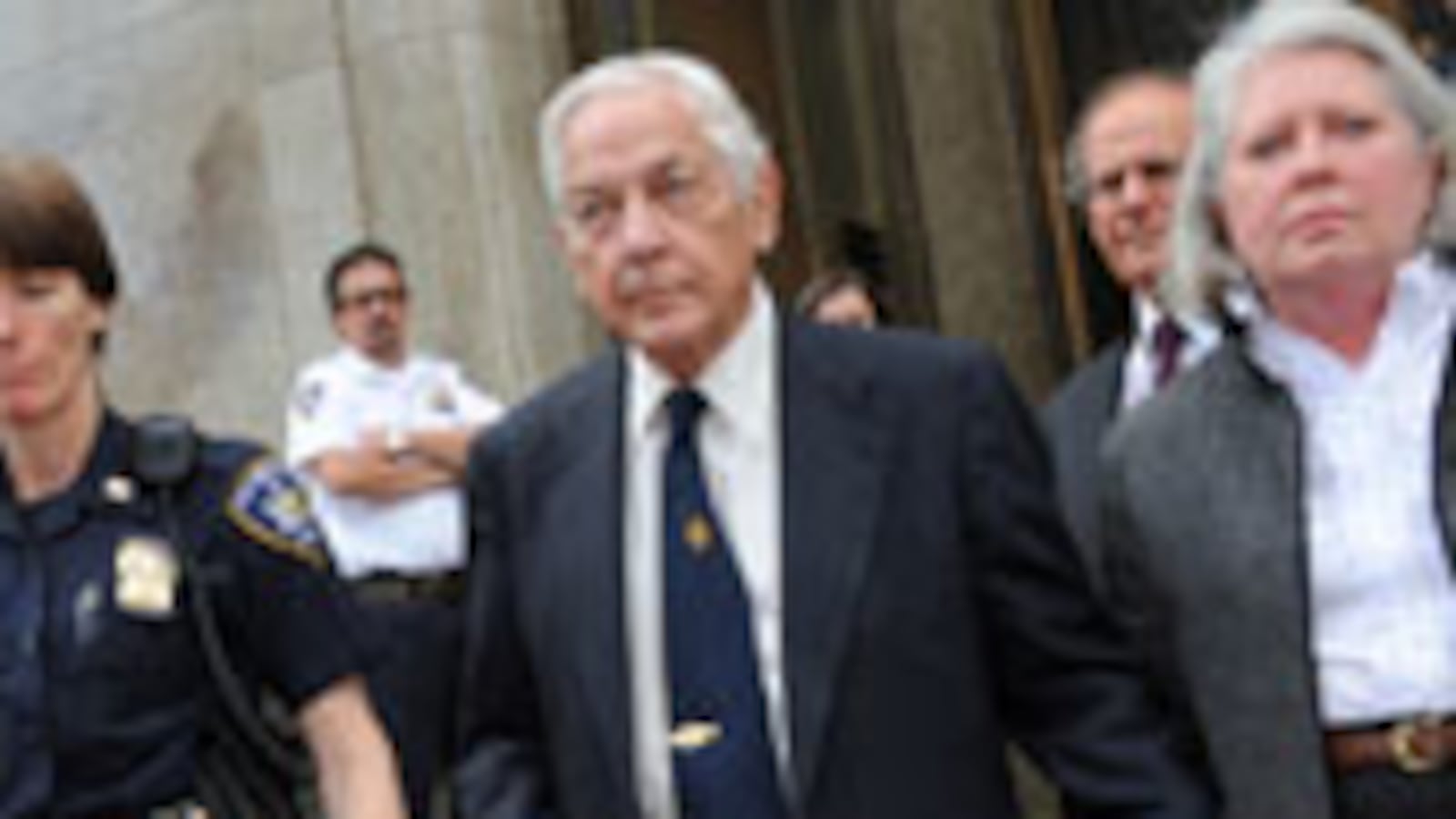
By October 6, just past the six-month anniversary of my jury service in the case of People of the State of New York vs. Anthony Marshall and Francis Morrissey (or, in general parlance, the Astor Trial), I could safely say that I believed Brooke Astor’s son, Tony Marshall, had the right to give himself a raise as the manager of his mother’s estate—in other words, that he had not committed grand larceny as defined by the State.
It was our third week of deliberations, and we the jury had already found the defendants guilty on a number of charges, including that they schemed to defraud the ailing and addled Mrs. Astor. Only a handful of counts remained on which to reach a verdict, including the one of grand larceny.
The 12 of us hunted for evidence, and found it. Testimony about Tony misrepresenting what he did. Letters and figures that didn’t add up.
I remained, at that point, unconvinced that Marshall was guilty of the grand larceny count. The prosecutors noted the rapidity with which Marshall, having just gotten a raise, turned around and bought a $920,000 boat. The yacht purchase looked bad, sure, but maybe he’d been planning to buy one for years. Still, that October morning, the words of one of my fellow jurors came back to me in, of all places, the shower. “But this,” she had argued, “was at the same time that he was stealing from the estate!” True. That nagged.
A few hours later that day, in deliberations, the topic came up. When my turn came, I made my case that grand larceny had not been proven beyond a reasonable doubt: Mr. Marshall could give himself a raise that was on par with others performing similar work. The yacht was bad timing, but maybe he got it based on the bonus, instead of asking for the bonus based on its cost. That didn’t necessarily speak to intent.
• Ralph Gardner, Jr.: Inside the Astor Verdict
But then another juror spoke his mind. The yacht was just another example, this juror’s argument went, of Tony going to the Brooke Astor ATM, and it stunk. Right about then, something in my brain snapped.
Evidence, I’ve learned, often follows emotion. An argument starts with a gut feeling, which leads you to seek out the evidence that supports or rejects your hunch. Over the three weeks my fellow jurors and I deliberated, we each struggled to find evidence that bolstered how we believed crimes were (or weren’t) committed. Even with that evidence in hand, selectively parsing it out to overcome the gut feelings of 11 other people required more digging, more discussion.
That morning, though, my gut feeling shifted. You know what? I thought to myself, an employee who steals is not entitled to a raise. Is not entitled to a job. Should Tony Marshall never again get a raise? Not one that, after an average salary hike of about 15% a year, suddenly leaps to 300%. Not in 2005, when his mother, once the doyenne of Park Avenue, could by nearly all accounts no longer even remember his name.
We—all 12 of us—hunted for evidence, and found it. Testimony about Tony misrepresenting what he did. Letters and figures that didn’t add up. At the end of the eleventh day of deliberations—the same day, I later learned, that a brief argument between two jurors (one of several) was referred to in the New York Post as “Fury on the Jury” - we unanimously agreed. Each element of Count #15—that the defendant had acted wrongfully, that he didn’t act under a claim of right in good faith—had been satisfied. Anthony Marshall had committed grand larceny in the first degree.
In the 48 hours since delivering our verdicts and having, as the judge presented it, our “First Amendment freedoms restored,” I’ve done a good deal of sight-seeing on Web sites that had covered the case over the past half year. The New York Times’ archive (let it be praised) has filled in details I never knew, and I’ve seen a number of places where the press drew conclusions that were pretty far off-base. But at least the press was in the room, hearing the testimony.
Not so the online commenters who’ve at times criticized our decisions, particularly the decision on the charge I struggled with. Quite a few, it seems, agreed with our decision, but any reassurance that might have come from that is tempered by knowing that so many others, with just as much (or little) information, didn’t. He deserved the money, people say, or, His mother failed him. Others claimed that the case should never have come to criminal court. More still, that an 85 year old shouldn’t have been brought to trial.
I think it’s safe to say that few of us spend a lot of time considering the concept of justice. Being a juror forces you to do so, to think about what constitutes the even-handed administration of the law. At several points during the trial, I was struck (in admittedly Mr. Smith Goes to Washington-esque fits of idealism) by the messy elegance of a system that requires 12 people to figure out, through conversation, false starts and dead ends, where the truth of a matter lies. The truth, in administering justice, is emergent; cobbled together from the collective puzzle pieces in twelve minds, driven by emotion, confirmed by fact.
Anthony Marshall, in nearly the last of a series of mistakes and misdeeds that drained money from his mother’s bank accounts and estate, stole over $1 million by giving himself a raise that was utterly without merit or justification. It took me six months and one week to realize that. It also took 11 other people. On Thursday afternoon, we rendered our verdict.
Philip Bump, a technology and communications consultant in New York City, served for six months as a juror in the case of the People of the State of New York vs. Anthony Marshall and Francis Morrissey. He writes a column, 'The Wayback Machine,' for Mediate.com. Mr. Bump lives in Manhattan with his wife, China, and his dog, Lucy.





